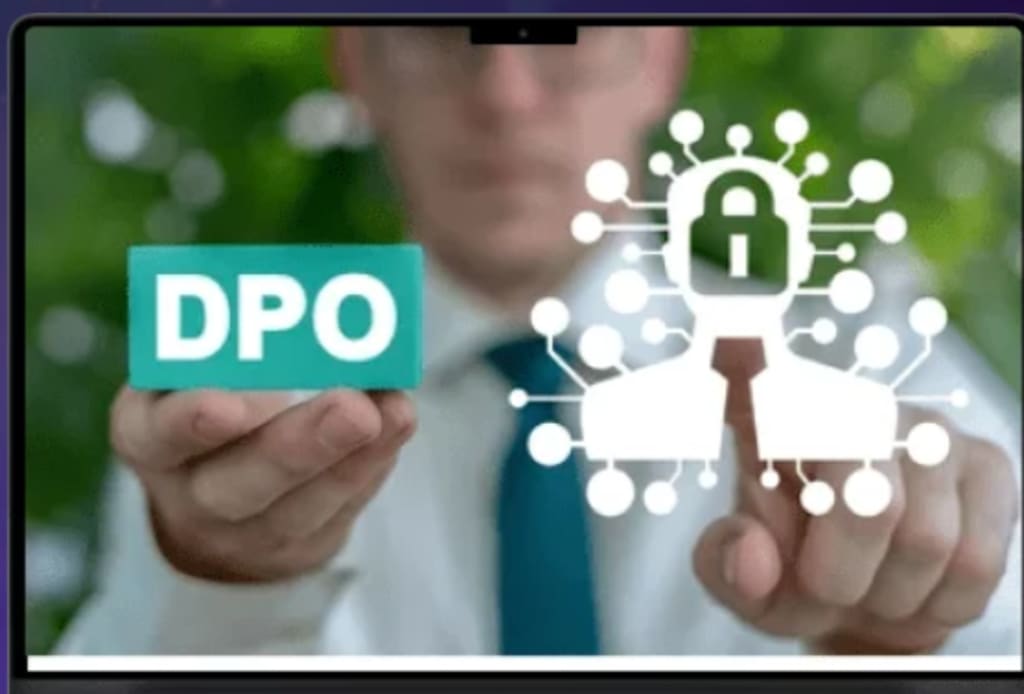What is a DPO’s role?
Trust the expertise of Tsaaro's Data Protection Officer (DPO) services to protect your data and navigate complex privacy regulations. join us today!

A Data Protection Officer (DPO) is an independent professional tasked with overseeing a company’s data protection strategy and ensuring compliance with data privacy laws.
An organization’s DPO is tasked with advising it on how to adhere to its legal obligations regarding data processing. A DPO is an impartial specialist in data protection.
According to Article 39 of the GDPR, the DPO’s duties should include:
Educating the business about its obligations under the GDPR and any pertinent EU or member state data protection laws, as well as the workers who do processing.
The GDPR and other pertinent EU or member state data protection laws are being followed.
Providing guidance on the company’s data protection policies, particularly how it assigns duties.
Educating and preparing employees who work on processing operations and related audits.
Providing guidance on DPIAs (data protection impact assessments) and keeping an eye on their progress.
Serving as the point of contact for the relevant supervisory authority on matters pertaining to data processing.
What qualifications and expertise are needed?
Article 37(5) states that DPOs should be chosen “on the basis of professional qualities and, in particular, expert knowledge of data protection law and practises and the ability to fulfil the tasks referred to in Article 39,” even though the GDPR does not specify the qualifications or experience that DPOs should possess.
In accordance with the definition in Recital 97, “The necessary level of expert knowledge should be determined in particular according to the data processing operations carried out and the protection required for the personal data processed by the controller or the processor.”
Therefore, understanding of the organization’s particular data protection requirements and processing activities, as well as its other legal or regulatory obligations, is crucial.
The DPO’s level of knowledge “must be commensurate with the sensitivity, complexity, and amount of data an organisation processes,” according to the EDPB-endorsed recommendations.
In other words, firms that process vast volumes of sensitive data or complicated personal data would need a DPO with more experience than organisations whose processing operations are more constrained.
How to Select a Data Protection Officer (DPO).
You must be aware of the qualities to search for before choosing a suitable DPO for your business. Recital 97 of the GDPR does offer certain guidance, notwithstanding the fact that it does not supply a particular list of credentials.
The crucial characteristics to watch out for when selecting a DPO for your business are listed below.
A DPO should be well-versed in all relevant data protection legislation, especially the GDPR. They have to have practical experience using these laws and be able to counsel your business on optimal procedures.
For a DPO, the capacity for independent work is essential. As a result, the DPO can only report to the top tier of management and cannot be disciplined for carrying out their duties.
To effectively explain data privacy issues and provide helpful advice to a company, a DPO must possess great communication skills.
Effective communication skills are paramount for a Data Protection Officer (DPO) to successfully address data privacy issues and offer valuable advice to a company. As a key liaison between the organization and its stakeholders, the DPO must be able to articulate complex privacy concepts in a clear and understandable manner. This includes not only explaining the legal and regulatory aspects of data protection but also conveying the potential risks and implications of mishandling sensitive information.
When engaging with company executives and decision-makers, the DPO needs to present data privacy issues in a business context. This entails highlighting the potential impact on the company's reputation, customer trust, and bottom line. By effectively communicating the tangible benefits of investing in robust data protection measures, the DPO can gain support and commitment from top management, making it easier to implement necessary changes and allocate resources to safeguard data.
Internally, the DPO must be adept at disseminating privacy policies and guidelines to all employees, regardless of their technical expertise. This involves tailoring the message to different departments and teams, emphasizing their specific roles in maintaining data security. By fostering a culture of privacy awareness and responsibility throughout the organization, the DPO can significantly reduce the likelihood of data breaches caused by human error or negligence.
Furthermore, an integral part of the DPO's role is to educate employees about their rights and responsibilities concerning data handling. Clear communication channels should be established, allowing employees to raise privacy concerns and seek guidance without fear of reprisal. This open dialogue enables the DPO to address potential issues proactively, ensuring compliance with data protection regulations and enhancing overall data privacy practices within the company.
Your DPO needs to be knowledgeable on the technical facets of data privacy, including data security systems, information technology, and cyber security.
With this information, a DPO can evaluate the efficiency of the current security measures in place at your firm and make a meaningful contribution to their development. Additionally, it enables them to offer their opinions on technological privacy concerns like data breaches, DPIAs, global data transfers, etc.
Click Here :- DPO as a Service





Comments
There are no comments for this story
Be the first to respond and start the conversation.